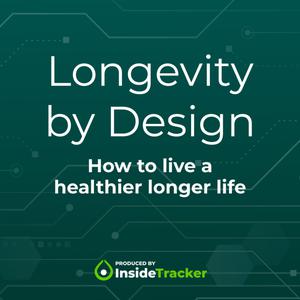
Longevity by Design
InsideTracker
Longevity by Design is a podcast for individuals looking to experience a longer, healthier life. In each episode, Dr. Gil Blander joins a co-host and an industry expert to explore a personalized health journey. The show helps you access science-backed information, unpack complicated concepts, learn what’s on the cutting edge of longevity research and the scientists behind them. Tune into Longevity by Design and see how to add years onto your life...and life onto your years.
- 1 hour 12 minutesThe impact of ultra-processed foods and fructose on metabolic health with Dr. Robert Lustig
In this episode of Longevity by Design, host Dr. Gil Blander talks with Dr. Robert Lustig, an emeritus professor of pediatrics at UCSF and a renowned neuroendocrinologist. Dr. Lustig dives into the impact of ultra-processed foods and fructose on metabolism, emphasizing how these contribute to obesity and metabolic diseases. He also discusses his journey from academia to public health advocacy, aiming to reform the food industry and reduce chronic diseases.
Episode highlights:
- Introduction: 00:00
- The Role of Insulin in Obesity and Metabolism 00:08:00
- The Influence of Big Food Industries on Public Health Policies 00:29:16
- The Misconception of Dietary Fats 00:40:0
- The Impact of Stress on Visceral Fat 00:49:27
Key Insights:Ultra-processed foods are detrimental to health
Ultra-processed foods, especially those high in fructose, have significant negative impacts on metabolic health. These foods contribute to obesity, fatty liver disease, and other chronic conditions by disrupting normal metabolic processes. They are typically high in sugar, low in fiber, and contain many additives and preservatives that harm the body's ability to regulate weight and insulin levels. The NOVA classification system highlights the degree of food processing, showing that the more processed a food is, the more it is associated with metabolic diseases. Consuming minimally processed foods (NOVA 1) is crucial for maintaining good health, as they are free from the harmful additives found in ultra-processed foods.
A calorie is not just a calorie
The concept that all calories are equal is misleading. Different types of calories have varying effects on the body. For example, calories from fructose and other sugars can lead to increased fat storage and metabolic problems, unlike calories from whole foods that contain fiber and other nutrients. The body's response to calories depends on factors like insulin response, satiety signals, and the presence of micronutrients. Studies have shown that ultra-processed foods cause people to consume more calories and gain weight compared to non-processed foods, despite having the same caloric content. Understanding this difference is essential for addressing obesity and metabolic diseases.
Fructose is a major contributor to fatty liver disease
Fructose, a type of sugar found in many processed foods and sweetened beverages, is a primary driver of fatty liver disease. Unlike glucose, which is metabolized by every cell in the body, fructose is mainly processed by the liver. Excessive consumption of fructose overwhelms the liver's ability to metabolize it properly, leading to the production of fat within the liver. This process, known as de novo lipogenesis, contributes to the development of non-alcoholic fatty liver disease (NAFLD), which is increasingly common even among children. Limiting the intake of fructose by avoiding sugary drinks and processed foods is crucial for preventing and managing fatty liver disease.
Longevity by Design is produced by InsideTracker, your data-driven wellness guide for optimizing your healthspan. For a limited time, visit insidetracker.com/podcast for 20% off any InsideTracker plan.
10 July 2024, 10:00 am - 29 minutes 55 secondsAsk Me Anything (AMA): Optimizing Health & Longevity with Dr. Gil Blander & Ashley Reaver, MS, RD, CSSD
In this Longevity by Design Ask Me Anything (AMA) episode with Ashley Reaver, MS, RD, CSSD, and Dr. Gil Blander, the focus is on user questions about optimizing health and longevity. Dr. Blander discusses the rationale behind InsideTracker's shift to a subscription model, emphasizing the importance of continuous engagement for long-term health improvement. He explains how this model encourages users to maintain their health optimization practices consistently over time, enhancing the overall effectiveness of their health plans.
Ashley and Gil also dive into the recent updates to InsideTracker’s blood work page, which now categorizes biomarkers into healthspan categories such as cognition, endurance, and gut health. This reorganization aims to simplify the complex data, making it more accessible and actionable for users. Dr. Blander highlights how these changes help users focus on the most critical health areas, guided by clear, data-driven recommendations.
The conversation also touches on the impact of real-life data from InsideTracker’s extensive user base. Dr. Blander shares fascinating insights, such as the relationship between sleep and cardiometabolic health markers and the influence of genetics on health outcomes. He underscores the importance of prevention, citing examples like early intervention for cardiovascular health and the benefits of maintaining a healthy weight and muscle mass for longevity. The episode concludes with a discussion on the growing trend of at-home testing, highlighting its convenience and potential for expanding preventive health measures to help people live better for longer.26 June 2024, 10:00 am - 48 minutes 50 secondsUnderstanding Aging to Extend Healthspan and Longevity with Dr. Gordon Lithgow
In this episode of Longevity by Design, hosts Ashley Reaver, MS, RD, CSSD, and Dr. Gil Blander sit down with Dr. Gordon Lithgow, a Professor and Vice President for Academic Affairs at the Buck Institute for Research on Aging. Dr. Lithgow's research focuses on understanding the mechanisms of aging and identifying genes and small molecules that can prolong lifespan. With a background in genetics from the University of Glasgow and extensive experience in biotechnology and aging research, Dr. Lithgow shares his journey from growing up in Scotland to leading a lab at the Buck Institute.
Dr. Lithgow discusses the compelling nature of aging as a profound biological mystery, which drew him into the field. He highlights his lab's approach of following curiosity-driven research, often using the nematode worm C. elegans as a model organism due to its short lifespan and genetic similarities to humans. This unbiased method has led to significant discoveries, including genetic mutations and drug-like molecules that extend lifespan. The conversation also covers the concept of geroscience, which Dr. Lithgow helped coin, emphasizing the link between aging and chronic diseases.
A major focus of Dr. Lithgow’s work is studying protein homeostasis, which declines with age. Protein misfolding is implicated in many age-related diseases; that discovery moved the lab’s focus from lifespan extension to efforts to understand drivers of healthspan and the causes of age-related chronic diseases, in particular Alzheimer’s and Parkinson’s. His work also includes the influence of environmental factors, such as mild heat stress, and dietary iron, vitamin D, and alpha-ketoglutarate (AKG) on aging. Dr. Lithgow's interdisciplinary collaborations aim to uncover new interventions to extend healthspan and longevity.
Dr. Gordon Lithgow is also the host of Buck Institute for Research on Aging's podcast, "We're not getting any younger... yet" on which he speaks with some of the brightest scientific stars on the planet to search for—and actually find answers to—questions on aging. The podcast can be found at https://www.buckinstitute.org/podcasts/ and on podcast apps.Episode timestamps
- Introduction: 00:00-02:42
- What led Dr. Gordon Lithgow to become a scientist and research the biology of aging?: 02:43-06:20
- Why are worms (C.-elegans) a good model for studying aging?: 06:21-07:55
- Why did Dr. Gordon Lithgow transition from research investigating ways for extending lifespan to extending healthspan?: 07:56-09:24
- What specific diseases is Dr. Gordon Lithgow researching?: 09:25-12:01
- What does protein shape mean for aging?: 12:02-13:12
- How does mild heat stress impact health and aging?: 13:13-16:35
- How does vitamin D and alpha-ketoglutarate impact aging, healthspan, and lifespan?: 16:36-25:26
- How does dietary iron impact aging, healthspan, and lifespan?: 25:27-29:57
- Are there more genes and proteins to be discovered that influence aging, or have they all been discovered?: 29:58-34:12
- What compound do you think has the most potential for extending healthspan and lifespan?: 34:13-35:54
- What is the impact of calorie restriction and exercise on healthspan and lifespan in humans?: 35:55-38:51
- What is the importance of clinical trials for aging research?: 38:52-42:09
- What are the future directions of Dr. Gordon Lithgow’s research?: 42:10-43:38
- Dr. Gordon Lithgow’s top tip for living better longer?: 43:39-48:50
12 June 2024, 10:00 am - 1 hour 5 minutesThe Impact of Exercise & Nutrition on Muscle, Tendons, Ligaments, & Aging with Dr. Keith Baar
In this episode of Longevity By Design, co-hosts Ashley Reaver, MS, RD, CSSD, and Dr. Gil Blander welcome renowned professor Dr. Keith Baar. As the head of the Functional Molecular Biology Lab at UC Davis, Dr. Baar has made groundbreaking discoveries about how exercise and nutrition influence the adaptation of muscles, tendons, and ligaments. During this episode, he shares his expertise on the critical role of exercise and nutrition for musculoskeletal health, longevity, and improving quality of life.
Dr. Baar discusses the profound impact that both strength and endurance exercise have on healthspan and longevity, emphasizing the unique benefits of strength training. He delves into the molecular biology of muscles, explaining his discovery that resistance exercise activates the mTOR pathway, which is crucial for muscle protein synthesis and muscle growth. He also shares his knowledge on the effects of the drug rapamycin, an inhibitor of mTOR, on muscle versus longevity, highlighting the nuances and complex balance needed for optimal health.
Dr. Baar also shares his expertise and addresses common misconceptions regarding tendons and ligaments. The conversation also covers the significance of nutritional timing, the benefits of integrating protein intake with exercise for muscle, and collagen and vitamin C for tendons and ligaments.
Listeners to this episode will be equipped with an understanding of the responses to different types of exercise and practical exercise and nutrition advice for optimizing muscle, tendon, and ligament health througout life.
Episode timestamps- Introduction: 00:00-02:52
- What led Dr. Keith Baar to become a scientist interested in exercise physiology?: 02:52-05:19
- What is the musculoskeletal system, and can you explain why it is so vital for health, physical function and performance, and quality of life?: 05:20-12:13
- What is the role of mTOR in health and longevity? 12:14-16:44
- What is the role of rapamycin and metformin in health and longevity? 16:45-20:58
- Activation of mTOR by resistance exercise and protein: 20:59-23:03
- Is there a window of opportunity for consuming protein following exercise to increase muscle protein synthesis? Is the timing of protein consumption post-exercise important for muscle protein synthesis? 23:04-27:35
- Is the type of protein important for muscle protein synthesis? 27:36-28:32
- Is there a difference between young and older adults in how they respond to resistance exercise?28:33-33:49
- What are the differences in molecular responses and longevity between resistance and endurance exercise?: 33:50-38:31
- What are ligaments and tendons? Are there differences in ligaments and tendons between men and women? 38:32-43:26
- What is the best way to exercise for tendons and ligaments? 43:27-49:10
- Is there a difference between pre-menopausal and post-menopausal women in tendons and ligaments?: 49:11-51:17
- Why is collagen important for tendons and ligaments?: 51:18-53:22
- Why is vitamin C important for collagen synthesis and tendons and ligaments?: 53:23-55:19
- When should a collagen supplement be consumed?: 55:21-57:07
- What are some misconceptions about tendons and ligaments?: 57:08-58:42
- What happens to tendons and ligaments during a joint replacement?: 58:43-01:00:50
- What excites or interests Dr. Keith Baar the most that has the potential to extend healthspan in the next 5-10 years?: 01:00:51-01:03:36
- Dr. Keith Baar’s top tip for health: 01:03:37-01:05:59
15 May 2024, 10:00 am - 1 hour 18 minutesThe Impact of DNA Damage & Lifestyle on Aging & Longevity Medicine with Dr. Morten Scheibye-Knudsen
In this episode of Longevity by Design, host Dr. Gil Blander is joined by Dr. Morten Scheibye-Knudsen, a leading figure in aging research. Dr. Scheibye-Knudsen discusses his groundbreaking research on the role of DNA damage in the aging process and its implications for chronic diseases, aging research, and longevity medicine. The goal of his work is "to discover interventions leading to healthier, happier, and more productive lives."
Dr. Scheibye-Knudsen's work is on understanding normal and premature aging, with a focus on the pivotal role of DNA damage in the aging process and interventions for healthier aging. By combining computational methods with laboratory experiments, his team explores innovative strategies to target DNA and counteract aging processes. This conversation illuminates the intricate relationship between DNA damage, aging, and chronic diseases.
Dr. Scheibye-Knudsen also discusses the impact of lifestyle (diet, exercise, sleep, social factors) on aging. He goes on to describe his work using data-driven approaches to better understand aging and developing interventions, including identifying novel targets and drugs, for healthier aging. Additionally, he explains what longevity medicine is and the importance of educating clinicians and politicians on this topic to translate research on aging into healthcare and improve people’s healthspan and lifespan. Dr. Scheibye-Knudsen's dedication to unraveling the mysteries of aging is advancing scientific knowledge, which has tangible benefits for global health and longevity.
Episode timestamps- Introduction: 00:00-03:06
- What led Dr. Morten Scheibye-Knudsen to become a scientist?: 03:07-04:37
- Could please give us an overview of the research you are doing?: 04:38-05:54
- What is DNA damage, and what causes it?: 05:55-07:54
- What do we know about the influence of DNA damage on aging and age-related diseases?: 07:55-09:41
- Can DNA damage be repaired? 09:42-14:14
- What questions are your research group asking to better understand DNA damage and repair and their effects on aging?: 14:15-16:22
- What is NAD, and why is it relevant to aging and age-related diseases?: 16:23-19:56
- What are the benefits and risks of NR and NMN supplements in humans?: 19:57-24:50
- What is a ketogenic diet? What are the effects of a ketogenic diet or ketones on DNA damage or repair and aging?: 24:51-31:08
- What is the effect of a ketogenic diet on cancer?: 31:09-32:29
- What is the Aging Research and Drug Discovery (ARDD) conference and its mission?: 32:30-40:43
- What are the most prevalent features of aging?: 40:44-47:54
- Are there differences in aging between females and males?: 47:55-50:21
- Are there differences in tissue aging trajectories?: 50:22-54:01
- Identifying compounds that target aging: 54:02-56:16
- Can nuclear morphology predict cellular senescence and cancer?: 56:17-01:04:04
- What is longevity medicine, and why is it so important for physicians?: 01:04:05-01:07:25
- What pharmaceutical drugs are the most promising for targeting aging to extend human healthspan and lifespan?: 01:07:26-01:12:00
- How important are lifestyle factors such as nutrition, physical activity and exercise, sleep, and social engagement and connections for human healthspan and lifespan?: 01:12:01-01:16:39
- Dr. Morten Scheibye-Knudsen’s top tip for health: 01:16:40-01:18:22
1 May 2024, 10:00 am - 1 hour 12 minutesThe Effects of Cellular Senescence and Senolytics on Healthspan with Dr. James Kirkland
Do you know what senescent (zombie) cells are and how cellular senescence and senolytics impact health? In this episode of Longevity by Design, hosts Ashley Reaver and Dr. Gil Blander are joined by Dr. James Kirkland from the Mayo Clinic, one of the world's leading figures in aging research. This episode is a deep dive into aging research, cellular senescence, and senolytics. Dr. Kirkland discusses the impact of cellular aging (senescence) on healthspan and his discovery of the first senolytic agents that remove senescent cells and extend healthspan, illuminating his pioneering work in aging research.
Dr. Kirkland shares insights into the science of cellular senescence and how selectively eliminating these cells could revolutionize the treatment of age-related chronic diseases. He sheds light on the mechanisms behind senolytics and their promise for extending healthspan. The discussion also touches on the importance of lifestyle factors like diet and exercise in managing senescent cells.
Dr. Kirkland also discusses geroscience, a research paradigm that seeks to understand the mechanisms of aging and how this knowledge can be used to slow the rate of aging, reverse its effects, delay or even cure age-related diseases, and extend healthspan. T Dr. Kirkland also covers the challenges and opportunities in translating these scientific discoveries into clinical applications, emphasizing the critical role of interdisciplinary efforts in advancing our understanding and management of aging.
This is an enlightening episode with Dr. Kirkland on aging research and the opportunities to revolutionize healthcare by combating aging-related diseases and extending people’s health span and lifespan.
Timestamps:- Introduction: 00:00-03:49
- What led Dr. James Kirkland to become a physician-scientist and become interested in aging research?: 03:50-05:24
- What is geroscience, and what are fundamental aging processes?: 05:25-09:17
- What are the differences between targeting aging vs. the traditional medical system of waiting to treat illnesses or diseases after they occur?: 09:18-12:39
- What are gerotherapeutics, and what is their relevance for healthspan and lifespan?: 12:40-16:10
- What are senescent cells? What is the impact of senescent cells on the body and aging: 16:11-26:39
- What are senolytics? How do senolytics work to target senescent cells to remove them?: 26:40-35:05
- How Dr. James Krikland discovered senolytics such as fisetin, quercetin, and dasatinib? What clinical trials on the effects of senolytics in humans have been done? 36:06-40:47
- Discovering biomarkers for senescent cells: 40:48-42:37
- What are some important factors to consider on the effects of gerotherapeutics and senolytics on lifespan and healthspan in model organisms compared to humans?: 40:38-47:39
- The potential for geroscience and gerotherapeutics, such as senolytics, to transform healthcare. What is the importance and what are some challenges of conducting clinical trials on gerotherapeutics, such as senolytics, to improve healthspan in humans?: 47:40-56:15
- What is the Translational Geroscience Network, and what are its goals?: 56:16-01:02:01
- How might senolytics be used clinically in the future if proven safe and effective? What conditions might they benefit?: 01:02:02–01:05:57
- What are the effects of lifestyle, such as diet and exercise, on senescent cells?: 01:05:58-01:06:52
- What excites Dr. James Kirkland the most about the potential for extending people's healthspan and lifespan with therapies, drugs, or interventions in the coming years?: 01:06:53-01:07:41
- Dr. Kirkland’s top tip for health? 01:07:42-01:12:14
17 April 2024, 10:00 am - 39 minutes 15 secondsAging, Mental Health, Suicide Risk & Prevention with Dr. Peter Franz
This episode of Longevity by Design discusses mental health and suicide risk and prevention. The following topics are discussed: depression, suicide, substance abuse, social isolation, among others also. This episode is intended to raise awareness of mental health issues and suicide risk and prevention. The topics discussed may be distressing or triggering for some individuals. Please proceed with caution if you continue to listen to this episode.
Our mental health is vital for healthspan and lifespan, yet mental health and suicide remain difficult topics for many. In this enlightening episode of Longevity by Design, host Dr. Gil Blander welcomes Dr. Peter Franz to explore the profound connection between aging, mental health, and suicide. Dr. Franz, an expert in mental health and suicide risk and prevention, shares insights on the prevalence of mental health issues and their impact on our lifespan and healthspan. Through an engaging discussion, they shed light on the critical need for understanding and addressing mental health to live longer, healthier lives.
The conversation dives into the statistics on mental health and suicide, highlighting how these issues are more common and impactful than many may realize. Dr. Franz emphasizes the importance of raising awareness on these issues, accessible resources and interventions, and the role of social support in combating isolation—a significant factor in mental health deterioration and increased suicide risk. He also discusses other major risk factors for mental health and suicide risk, including the effect of age. The discussion also addresses barriers to seeking mental health care and the stigmatization surrounding these topics.
Dr. Franz offers practical advice on mental health and suicide prevention, stressing the importance of social support and seeking professional help when needed. He advocates for a holistic approach to health, including social connections and engagement, and the significance of the inextricable link between our mental health and physical health. This episode not only educates on the links between aging, mental health, and suicide risk and prevention but also encourages listeners to take proactive steps toward mental wellness, underscoring the message that taking care of one's mental health is essential for living a long, healthy, and fulfilling life.
3 April 2024, 10:00 am - 1 hour 7 minutesXPRIZE Healthspan: Revolutionizing Human Aging & Healthspan with Dr. Jamie Justice
Can we find ways to target human aging and extend healthspan? This ambitious premise is at the heart of XPRIZE Healthspan, a 7-year, $101 million global competition with an audacious challenge: to successfully develop a proactive, accessible therapeutic that restores muscle, cognitive, and immune function by a minimum of 10 years, with a goal of 20 years, in persons aged 65-80 years, in one year or less.
In this episode of Longevity by Design, hosts Ashley Reaver and Dr. Gil Blander spoke with Dr. Jamie Justice, Executive Vice President of the Health Domain at XPRIZE, and Executive Director of XPRIZE Healthspan. The conversation sheds light on the emerging scientific evidence and paradigm-shifting concept for therapeutic interventions to extend healthspan and lifespan by targeting aging, rather than one age-related disease at a time. Dr. Justice also discusses her career journey and the XPRIZE Healthspan competition, in which she is leading international networks to drive innovative solutions to improve human health and aging that is affordable and accessible to all.
The conversation also explores the intersection of art and science in Dr. Justice's work. She emphasizes the role of creativity in scientific discovery, suggesting that a holistic approach is essential for groundbreaking achievements in aging research. The episode wraps up with Dr. Justice emphasizing a holistic approach for good health. This episode is a must-listen for anyone interested in aging and healthspan and the innovative work being done by XPRIZE.
Episode timestamps
- Introduction: 00:00-02:08
- What led Dr. Jamie Justice to become a scientist?: 02:09-06:55
- How did Dr. Jamie Justice get interested in aging, healthspan, and longevity research?: 06:56-13:14
- What kind of research did Dr. Jamie Justice do before becoming the EVP of the Health Domain at XPRIZE Foundation?: 13:15-26:09
- What is XPRIZE?: What is the mission of XPRIZE? Why did Dr. Jamie Justice join XPRIZE?: 26:10-35:36
- What is XPRIZE Healthspan?: 35:37-45:46
- How is XPRIZE uniquely positioned to advance and facilitate innovative solutions to improve human health and aging?: 45:47-49:54
- What are the phases of XPRIZE Healthspan?: 49:55-56:05
- Who can apply to be in the XPRIZE Healthspan competition?: 56:06-58:54
- What kind of trial designs does the XPRIZE Healthspan competition allow?: 58:55-01:02:38
- How is the winner of XPRIZE Healthspan decided?: 01:02:39-01:04:57
- Dr. Jamie Jusice’s top tip for improving health: 01:04:58-01:07:46
20 March 2024, 10:00 am - 1 hour 19 minutesLongevity Genes, Blood Biomarkers of Aging, & Targeting Aging with Metformin with Dr. Nir Barzilai
Aging is inevitable, but can we influence how we age? In this episode of Longevity by Design, hosts Dr. Gil Blander and Ashley Reaver, MS, RD, CSSD, interview Dr. Nir Barzilai—the Director of the Institute for Aging Research at the Albert Einstein College of Medicine and the Director of the Paul F. Glenn Center for the Biology of Human Aging Research and of the National Institutes of Health’s (NIH) Nathan Shock Centers of Excellence in the Basic Biology of Aging—during which he discusses groundbreaking research on aging.
This is an enlightening discussion with Dr. Barzilai on factors influencing healthspan and lifespan, and the paradigm-shifting idea of targeting aging to extend healthspan and lifespan. He shares fascinating insights from his research on the influence of genetics and lifestyle on healthspan and lifespan, and blood biomarkers of aging. The conversation sheds light on the emerging scientific evidence and paradigm-shifting concept for medical interventions (gerotherapeutics) to extend healthspan and lifespan by targeting the underlying biology of aging.
The episode wraps up with actionable insights for listeners interested in enhancing their healthspan and longevity. Dr. Barzilai discusses the importance of personalized health strategies, integrating cutting-edge research with everyday health practices while emphasizing the importance of a holistic approach. As a listener, you will leave equipped with knowledge and science-backed ways to navigate your personal health journey and help you live healthier longer.
Timestamps:- Introduction: 00:00-04:13
- Why Dr. Barzilai’s studies centenarians and their children?: 04:14-10:07
- Do centenarians live longer with poor health or live healthier longer? 10:08-13:07
- Does becoming a centenarian have a strong genetic influence?: 13:08-15:41
- How do growth hormone and IGF-1 affect healthspan and lifespan?: 15:32-23:39
- What other genes affect healthspan and lifespan?: 23:40- 26:51
- Does low IGF-1 negatively impact muscle and physical functioning?: 26:52-28:40
- What are the effects of ethnicity and socioeconomic status on longevity: 28:41-30:57
- What is the effect of lifestyle, nutrition, and exercise on the longevity of centenarians?: 30:58-34:07
- Do women or men live longer?: 34:08-37:55
- Why do women live longer than men?: 37:56-41:38
- Biomarkers of aging and biomarkers of organ aging: 41:39-47:07
- What is metformin, and what is the purpose of the TAME trial?: 47:08-51:37
- Do you think metformin will improve healthspan and lifespan?: 51:38-54:20
- Does metformin only improve blood glucose control, or does it benefit health and aging in other ways? 54:21-56:50
- Is metformin good for older adults but not young adults?: 56:51-57:45
- How does the combination of metformin and exercise impact muscle size (hypertrophy) and strength?: 57:46-01:00:45
- Should everyone take metformin?: 01:00:46-01:03:13
- Dr. Gil Blander’s and Dr. Nir Barzilai’s personal humorous anecdotes on exercise: 01:03:14-01:04:32
- Is there a reason and explanation for why metformin did not show an effect on lifespan in mice in the Interventions Testing Program (ITP)?: 01:04:33-01:07:01
- Are GLP-1 agonists beneficial for healthspan and lifespan?: 01:07:02-01:10:55
- Are there tradeoffs with using GLP-1 agonists?: 01:10:56-01:11:43
- What are the top 5 gerotherapeutic candidates for improving healthspan and lifespan?: 01:11:44-01:15:10
- Dr. Nir Barzilai’s top tip for improving health: 01:15:11-01:19:29
6 March 2024, 11:00 am - 39 minutes 49 secondsThe Impact of Exercise on Blood Biomarkers and InsideTracker’s New DNA Healthspan Report with Dr. Bartek Nogal
In this episode of Longevity by Design, Dr. Gil Blander and Ashley Reaver, MS, RD, CSSD, sit down with Dr. Bartek Nogal from InsideTracker to explore the cutting-edge intersections of exercise, genetics, blood biomarkers, health optimization, and longevity. Dr. Bartek Nogal, with a strong background in biological engineering and genomics, dives into how personalized health data can shape our understanding of aging and wellness. He discusses InsideTracker's new innovative approach to using DNA analysis for tailoring health interventions, emphasizing the importance of actionable guidance for optimizing blood biomarkers and extending healthspan and longevity.
Dr. Bartek Nogal shares compelling insights into the latest findings from InsideTracker's peer-reviewed published study on the effect of running on blood biomarkers and metabolic health, along with the influence of genetics—highlighting the power of exercise combined with the added value genetics provide for even greater personal health optimization. Dr. Nogal also discusses InsideTracker’s new innovative DNA healthspan report and the enhanced information and deeper insights it provides.
The conversation is a deep dive into how technology bridges the gap between scientific research and everyday health practices, offering listeners a roadmap to a longer, healthier life. Listeners will leave with a clear understanding of the power of exercise on blood biomarkers and genomics for personal health and practical tips for leveraging their genetic information to make even better-informed lifestyle choices. This episode is a testament to the evolving landscape of health and science, where the fusion of data, technology, and personalized insights paves the way for a future of optimized health and longevity.
Listen to all episodes of Longevity by Design at https://info.insidetracker.com/longevitybydesign
Episode timestamps:- Introduction: 00:00-02:32
- What led Dr. Bartek Nogal to become a scientist: 02:33-03:27
- Dr. Bartek Nogal’s career at InsideTracker: 03:28-04:02
- InsideTracker’s peer-reviewed study: Dose response of running on blood biomarkers of wellness in generally healthy individuals (https://pubmed.ncbi.nlm.nih.gov/37967046/): 04:03-06:46
- What is principal component analysis (PCA), and what were the findings using PCA: 06:47-07:56
- What is the effect of running blood biomarkers? What is the effect of the amount of running on blood biomarkers?: 07:57-09:27
- What was the effect of running on BMI (body mass index): 09:28-10:44
- What is Mendelian randomization, and what is the relationship of genetics with exercise and blood biomarkers? : 10:45-12:40
- What is the influence of genes on the relationship between exercise and diet: 12:41-13:33
- What are the strengths of Mendelian randomization for understanding the influence of genetics: 13:34-17:05
- What were the key findings from InsideTracker’s study on the effect of running on blood biomarkers 17:06-18:56
- What is InsideTracker’s new DNA report? What was the motivation for developing this new DNA healthspan report: 18:57-20:31
- What additional information and insights does InsideTracker’s new DNA report and scores provide: 20:32-28:41
- How much do genes or lifestyle influence blood biomarkers and risk of developing diseases: 28:42-32:24
- How to use InsideTracker’s new DNA and healthspan scores to optimize blood biomarkers and health: 32:25-34:28
- What is the future of genetics research: 34:29-36:36
- What is the future of genetic testing at InsideTracker: 36
21 February 2024, 11:00 am - 55 minutes 45 secondsAsk Me Anything (AMA): Oral Health, Healthspan, and Longevity with Dr. Gil Blander and Ashley Reaver, MS, RD, CSSD
Did you know that your oral health has a profound impact on healthspan and longevity?
Do you want to learn about the connections between oral health, healthspan, and longevity and what you can do to improve your oral health to help you live longer and add more healthy years to your life?
This episode of Longevity by Design is an Ask Me Anything (AMA) between Dr. Gil Blander and Ashley Reaver, MS, RD, CSSD, where they dive into the often-overlooked importance of oral health for healthspan and longevity. They gathered and answered questions asked by the Longevity by Design audience, with the scientific evidence indicating that oral health is not just about a nice smile but also has a startling link with healthspan and longevity.
Dr. Gil Blander and Ashley Reaver begin by defining what oral health and oral frailty are. They discuss that good oral health is an essential aspect of overall health and well-being, whereas poor oral health can lead to various dental and health problems. They then answer questions on the oral microbiome and what you should know about it. They also answer questions on how oral health is connected to the health of the rest of the body, healthspan, and longevity–with an emphasis on mortality, Alzheimer’s disease, cardiovascular disease, and diabetes.
Importantly, Dr. Blander and Ashley answer questions backed by science on what you can do to improve your oral health. They conclude by addressing questions on the influence of nutrition on oral health and the not-so-obvious but intriguing evidence on the link between oral health and physical fitness and function.
Listen to all episodes of Longevity by Design at https://info.insidetracker.com/longevitybydesign
Episode timestamps:- Introduction: 00:00-01:44
- What is the reason for choosing the topic of oral health, healthspan, and longevity: 01:44-03:11
- What is oral health: 03:12-04:23
- How is oral health connected to healthspan and longevity: 04:24-09:01
- What is oral frailty: 09:02-10:04
- What is the oral microbiome and what is known about the oral microbiome: 10:05-14:59
- What is the relationship between oral health and cognitive health: 15:00-19:36
- What is the relationship between oral health and cardiovascular diseases: 19:37-23:43
- What is the relationship between oral health and diabetes: 23:44-28:01
- Preventing versus treating diseases: 28:02-30:54
- How to improve oral health: 30:55-31:42
- When should I brush my teeth in the morning, before or after breakfast: 31:43-33:51
- How long should I brush my teeth? How do I know if I am brushing them correctly and for the right amount of time: 33:52-35:38
- Should I use toothpaste with fluoride in it: 35:38-36:15
- How often should I floss? What is a water flosser, and is it beneficial: 36:16-38:15
- Should I use a mouthwash: 38:15-42:27
- What is the influence of nutrition on oral health: 42:28-48:35
- Is there a connection between oral health and physical fitness and physical function: 48:36-51:14
- Summary: 51:15-55:42
7 February 2024, 11:00 am - More Episodes? Get the App
Your feedback is valuable to us. Should you encounter any bugs, glitches, lack of functionality or other problems, please email us on [email protected] or join Moon.FM Telegram Group where you can talk directly to the dev team who are happy to answer any queries.
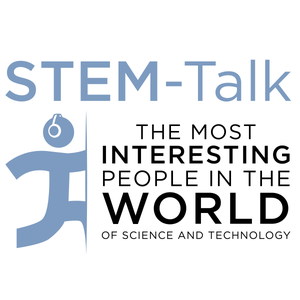 STEM-Talk
STEM-Talk
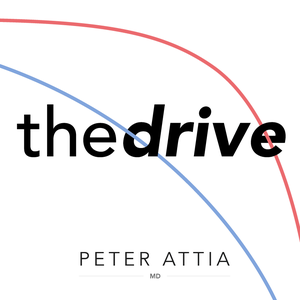 The Peter Attia Drive
The Peter Attia Drive
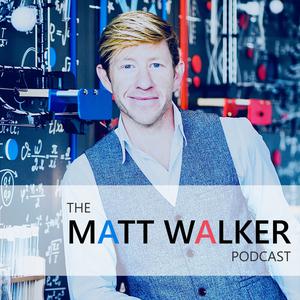 The Matt Walker Podcast
The Matt Walker Podcast
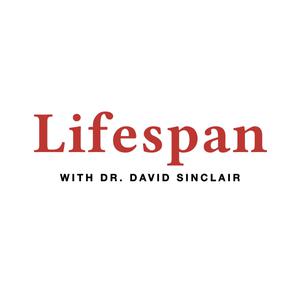 Lifespan with Dr. David Sinclair
Lifespan with Dr. David Sinclair
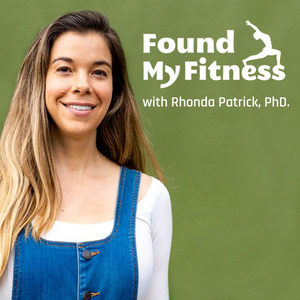 FoundMyFitness
FoundMyFitness
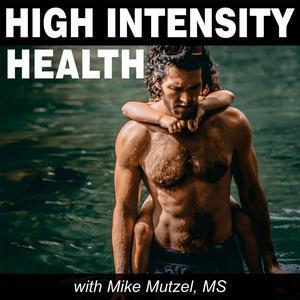 High Intensity Health with Mike Mutzel, MS
High Intensity Health with Mike Mutzel, MS